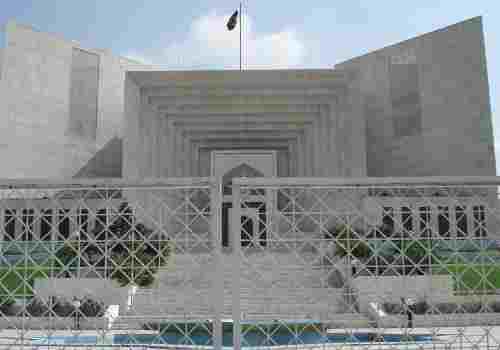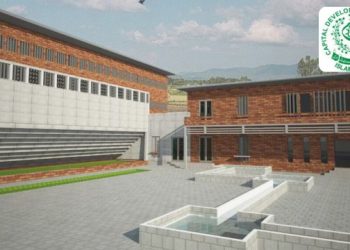ISLAMABAD: The Supreme Court (SC) on Friday dismissed the objections raised by the previous Pakistan Democratic Movement (PDM) government to the bench tasked with adjudicating a series of pleas challenging the formation of a three-judge commission. The commission was established to investigate the authenticity of audio leaks that had implicated both politicians and judges of the highest court, as well as their family members.
Justice Ijazul Ahsan delivered the brief ruling, characterizing the objections as an “assault on the judiciary’s independence.”
The former coalition government had created the commission on May 20 under Section 3 of the Pakistan Commission of Inquiry Act 2017. The commission was led by senior puisne judge Justice Qazi Faez Isa, with the participation of Balochistan High Court Chief Justice Naeem Akhtar Afghan and Islamabad High Court Chief Justice Aamer Farooq.
On May 26, the Supreme Court had ordered the panel to halt its proceedings. This decision was made by the five-member bench responsible for hearing the case.
The ruling came in response to a set of petitions submitted by various parties, including Supreme Court Bar Association (SCBA) President Abid Shahid Zuberi, SCBA Secretary Muqtedir Akhtar Shabbir, PTI Chairman Imran Khan, and Advocate Riaz Hanif Rahi, all seeking to declare the formation of the audio commission as unlawful.
As a result, the government-appointed commission decided to suspend its activities until the Supreme Court reached a decision on the petitions.
However, the PDM government demanded the reconstitution of the five-member bench overseeing the challenge to the commission’s formation. They argued that Chief Justice of Pakistan Umar Ata Bandial, Justice Ahsan, and Justice Akhtar should recuse themselves from the bench due to the “rules of natural justice” requiring impartial adjudicators.
In addition to their objections about the presence of the Chief Justice on the bench, they also pointed out that some of the audio leaks pertained to two other members, Justice Akhtar and Justice Ahsan.
One audio leak involved a conversation between petitioner Abid Zuberi and the then chief minister, discussing a case involving CCPO Ghulam Mehmood Dogar. Justice Ahsan headed the bench overseeing this case.
Similarly, another audio leak featured a conversation between a senior lawyer’s wife and the mother-in-law of the Chief Justice, with reference to Justice Akhtar.
A comprehensive verdict, authored by Chief Justice Bandial, was issued later in the day.
According to the detailed verdict, the Attorney General for Pakistan (AGP) failed to address the court’s inquiry regarding how the Chief Justice or his relative’s interests were linked to the case. The AGP candidly acknowledged that neither the Chief Justice nor his relative had any pecuniary or proprietary interests tied to the petitions. Furthermore, the AGP clarified that the federal government had not raised allegations of bias.
The order clarified that conflict of interest and bias are valid grounds for seeking a judge’s recusal from a case. Since the AGP focused only on the conflict of interest ground and not bias, it was evident that the federal government did not anticipate any prejudice from the Chief Justice.
Moreover, the order noted that the relative of the Chief Justice was neither a party to the petitions nor claimed to be involved in the matter under consideration by the court. Therefore, the allegations against the Chief Justice regarding conflict of interest appeared to be an attempt to delay the case.
The verdict also commented on the previous government’s treatment of the Supreme Court and some of its judges, describing it as “inimical.” It pointed out a series of events where the previous government and its ministers had sought to undermine the court’s authority and tarnish the reputation of certain judges in an effort to obstruct, delay, or distort the court’s judgments on the people’s constitutional right to be governed by an elected government.
The order stated that the PDM government had, through various maneuvers and strategies, succeeded in delaying the court’s adjudication and discrediting its judgments. It cited the Supreme Court (Review of Judgments and Orders) Act, 2023, which was enacted by Parliament but subsequently invalidated by the court, as well as the repeated requests for recusals of certain judges and incendiary remarks made by former ministers.
Furthermore, it highlighted how the previous government had used the election watchdog’s appeal against the April 4 order to hold elections to the Punjab Assembly as a means of resistance.
The order warned that while the court had exhibited tolerance, forbearance, and restraint in the face of such actions, any refusal to implement a final and binding court judgment could have consequences as defined in the Constitution.














